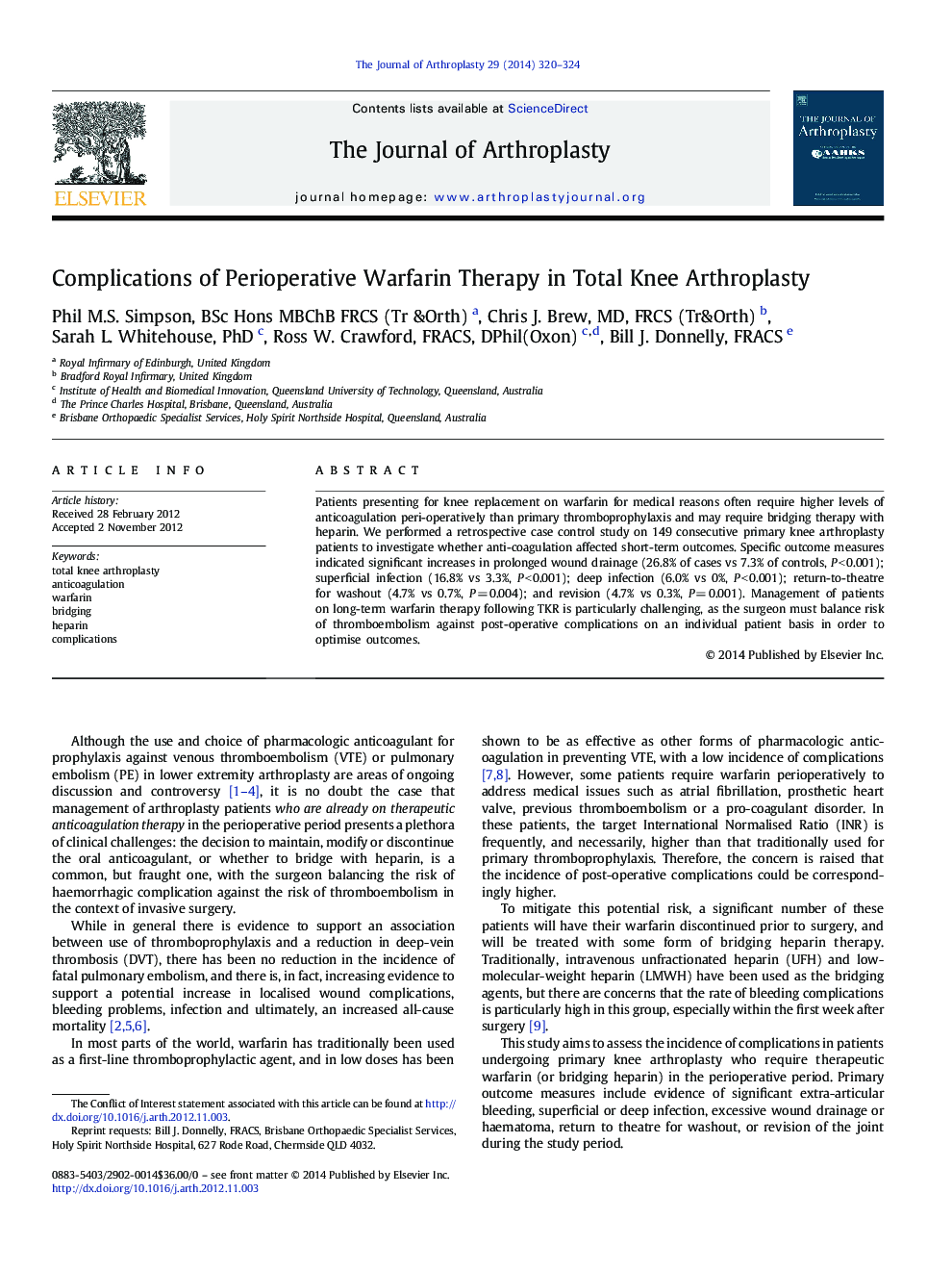| Article ID | Journal | Published Year | Pages | File Type |
|---|---|---|---|---|
| 6209888 | The Journal of Arthroplasty | 2014 | 5 Pages |
Patients presenting for knee replacement on warfarin for medical reasons often require higher levels of anticoagulation peri-operatively than primary thromboprophylaxis and may require bridging therapy with heparin. We performed a retrospective case control study on 149 consecutive primary knee arthroplasty patients to investigate whether anti-coagulation affected short-term outcomes. Specific outcome measures indicated significant increases in prolonged wound drainage (26.8% of cases vs 7.3% of controls, PÂ <Â 0.001); superficial infection (16.8% vs 3.3%, PÂ <Â 0.001); deep infection (6.0% vs 0%, PÂ <Â 0.001); return-to-theatre for washout (4.7% vs 0.7%, PÂ =Â 0.004); and revision (4.7% vs 0.3%, PÂ =Â 0.001). Management of patients on long-term warfarin therapy following TKR is particularly challenging, as the surgeon must balance risk of thromboembolism against post-operative complications on an individual patient basis in order to optimise outcomes.
